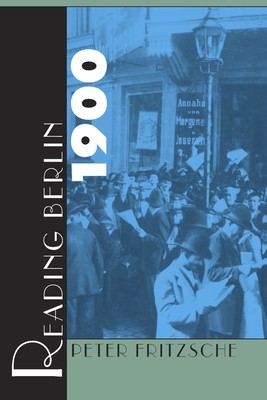
- We will send in 10–14 business days.
- Author: Peter Fritzsche
- Publisher: Harvard University Press
- ISBN-10: 0674748824
- ISBN-13: 9780674748828
- Format: 14 x 20.8 x 2.1 cm, minkšti viršeliai
- Language: English
- SAVE -10% with code: EXTRA
Reviews
Description
The great cities at the turn of the century were mediated by words--newspapers, advertisements, signs, and schedules--by which the inhabitants lived, dreamed, and imagined their surroundings. In this original study of the classic text of urban modernism--the newspaper page--Peter Fritzsche analyzes how reading and writing dramatized Imperial Berlin and anticipated the modernist sensibility that celebrated discontinuity, instability, and transience. It is a sharp-edged story with cameo appearances by Georg Simmel, Walter Benjamin, and Alfred Döblin. This sumptuous history of a metropolis and its social and literary texts provides a rich evocation of a particularly exuberant and fleeting moment in history.
EXTRA 10 % discount with code: EXTRA
The promotion ends in 23d.03:49:59
The discount code is valid when purchasing from 10 €. Discounts do not stack.
- Author: Peter Fritzsche
- Publisher: Harvard University Press
- ISBN-10: 0674748824
- ISBN-13: 9780674748828
- Format: 14 x 20.8 x 2.1 cm, minkšti viršeliai
- Language: English English
The great cities at the turn of the century were mediated by words--newspapers, advertisements, signs, and schedules--by which the inhabitants lived, dreamed, and imagined their surroundings. In this original study of the classic text of urban modernism--the newspaper page--Peter Fritzsche analyzes how reading and writing dramatized Imperial Berlin and anticipated the modernist sensibility that celebrated discontinuity, instability, and transience. It is a sharp-edged story with cameo appearances by Georg Simmel, Walter Benjamin, and Alfred Döblin. This sumptuous history of a metropolis and its social and literary texts provides a rich evocation of a particularly exuberant and fleeting moment in history.


Reviews